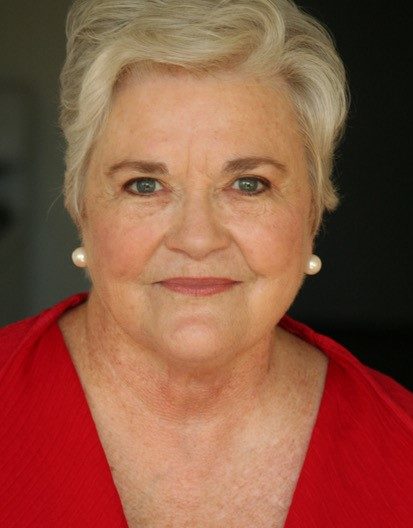Introducing a Revolutionary Solution to Remake Nursing Education
WHAT IS THE PROBLEM?
The nursing community has been charged to remake its educational programs to better meet the contemporary needs of patient care and the nursing practice. The landmark study by The Carnegie Foundation ¹ has challenged us to radically change nursing curricula and to identify the most effective teaching and learning practices for nursing students.
There is a gap between what academia teaches and how they prepare nurses versus the needs and the practice of practice partners across the healthcare settings where nursing care is being delivered.
In Summary:
Individual efforts have attempted to meet this call to action, but there has not been a coordinated effort that brings together academic and practice scholars to radically change curricula. Nor has there been an organization to provide thought-leadership support to faculty and institutions and explore innovations in nursing education.
Our Solution: Benner Institute
The Mission of the Benner Institute for Teaching and Learning is to:
- Provide thought leadership for nursing education, curricula, and teaching/learning.
- Serve as an innovation incubator for teaching/learning methodologies.
- Disseminate and foster adoption of innovations to improve nursing education nationally and internationally.

With more than 11,000 new graduate nurses entering the workforce every year, it’s more important than ever to improve the preparation of nurses to improve the health of Californians.
We hope you will join us in building the Benner Institute by providing financial support, participating in Institute programs, and advocating for its mission. Please read and share our program brochure.
For more information about the Benner Institute for Teaching and Learning and/or to join our mailing list.
¹ Educating Nurses: A Call for Radical Transformation. (2010). San Francisco: Jossey-Bass
Clinical Faculty Development
Nursing faculty play a critical role in preparing students for rapid changes in health care. HealthImpact’s Clinical Faculty Development Program supports faculty in meeting this need. LEARN MORE HERE.
The Nurse Preceptor Certificate Program
One preceptor program offered by the Benner Institute for Teaching and Learning describes their perspective on the goal and purpose of clinical education and teaches their preceptors to precept for the purpose of clinical education. Their goal of clinical education, as stated above, is to move learners from seeing the clinical world as being elemental, partial, and dominated by tasks and procedures to engaging with the clinical world, as a nurse, to see meaningful clinical patterns and an increased understanding the whole patient, family, or community situation (Benner, Tanner & Chesla, 2009). The purpose of clinical education is to 1) develop a perceptual grasp (seeing and noticing), a sense of salience, clinical reasoning and judgment, and clinical imagination in particular clinical situations; 2) understand the notions of the good internal to the practice of nursing (i.e., the American Nurse Association Code of Ethics) to develop advocacy skills for individual, family, community, and/or social good (e.g., equity, among others); 3) respect humanity and give social space to develop skills of involvement and relationship building (diversity, inclusion, belonging); 4) develop a reflective, self-improving practice (i.e., learning from the situation, other professionals, from mistakes, failures; and guarding against bias); and 5) develop competence in the nine clinical work role competencies (HealthImpact, n.d.). The nine clinical work role competencies were modified to encompass all types of clinical nursing practice from clinical work role competencies in acute and critical care across the lifespan that were inductively identified through research by Benner, Hooper Kyriakidis, and Stannard (2011). The nine clinical work role competencies can be found in Box 1. The nine clinical work role competencies are one way to define the practice of direct care nursing. By clearly articulating the purpose of clinical education with preceptors, the preceptors are better able to use appropriate andragogies such as, but not limited to, situated coaching, oral and written narratives to support the development of perceptual grasp, a sense of salience, clinical reasoning and judgement, clinical imagination, advocacy skills, skills of involvement, a self-improving practice, and the clinical work role competencies.
Patricia Benner Introduces The Benner Institute for Teaching and Learning
Webinar Series
STRUGGLING TO KEEP YOUR CLASS ENGAGED ONLINE?
The Benner Institute recently produced two webinars on online teaching and learning in nursing education. These webinars offer a learning science and learner-centric curriculum to increase and maintain student engagement. Each webinar begins with a theoretical framework and then give suggestions for course design and delivery of the content.
Tips & Tricks from Experts in Learning Science
THE RADICAL TRANSFORMATION OF NURSING EDUCATION WEBINAR SERIES
- The Formation and Everyday Ethical Comportment (presented June 24, 2020)
- The Cognitive Apprenticeship (presented July 15, 2020)
- The Practice Apprenticeship (presented August 5, 2020)
ONLINE LEARNING WEBINAR SERIES
- Effective College Teaching in an Online Environment (presented September 30, 2020)
- Creating a Community of Inquiry in Online Learning (presented October 21, 2020)
CLICK HERE for details and to purchase a webinar package.
 The Benner Institute is a collaboration between HealthImpact and Dr. Patricia Benner. Dr. Benner is an internationally renowned nursing educator, researcher, author and co-author of more than 12 books, whose influence extends beyond nursing and into the areas of clinical practice and clinical ethics.
The Benner Institute is a collaboration between HealthImpact and Dr. Patricia Benner. Dr. Benner is an internationally renowned nursing educator, researcher, author and co-author of more than 12 books, whose influence extends beyond nursing and into the areas of clinical practice and clinical ethics.
Patricia Benner, RN, PhD, FAAN
Professor Emerita
University of California, San Francisco School of Nursing


